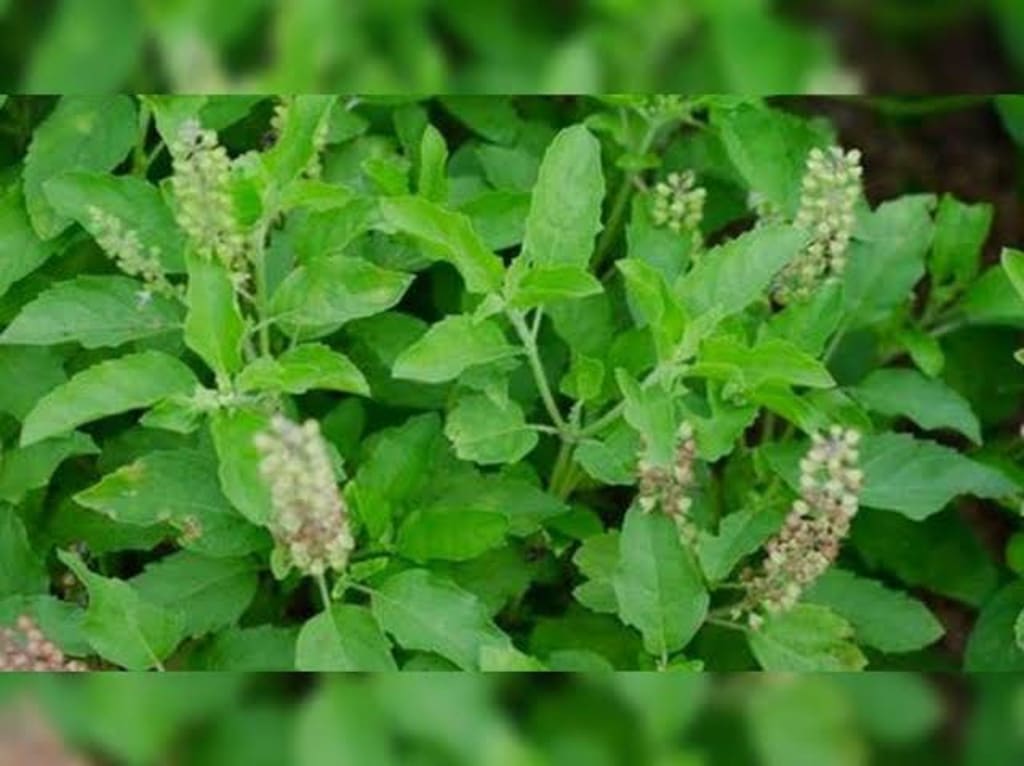BENEFITS OF KEELANELLI
Start writing... Keezhanelli also called Keelanelli in Tamil is an amazing plant with wonderful medicinal uses and health benefits. From treating liver diseases and kidney stones to aiding hair growth, this plant has wide uses. I am sure many of you would have heard about keelanalli for it’s amazing use in treating hepatitis. Keelanelli is so popular for treating jaundice that many tend to forget that this wonderful plant has other medicinal uses too. Usually the root of this keelanelli plant is used more than the leaves in home remedies.What Is Keelanelli | Chanca Piedra?It is a small plant that grows in tropical and subtropical regions in Central and South American countries, India and East Asian Countries. It is such a joy to write about herbs that are treasured and used for centuries and keelanelli is one such herb that has been used in home remedies for centuries.Keelanelli Botanical Name:The botanical name of keelanelli plant is Phyllanthus Niruri and it belongs to the family Phyllanthaceae and genus Phyllanthus.Keelanelli Plant Description:Keelanelli plant grows to a height of 20 to 25 inches and has ascending branches with small tiny leaves. The fruits are tiny and are found in a line underneath the leaf. Keelanelli is found everywhere in Tamil Nadu. If you can identify this plant, you can easily find it and some times you can even spot it in wastelands in cities and towns.Keelanelli Common Names:Phyllanthus Niruri is popularly called Chanca Piedra in Spanish and most of the keelanelli products sold online are sold under the name Chanca Piedra. Keelanelli is the Tamil name and it is commonly called Gale Of The Wind and Stone breaker (because it removes kidney stones) in English, in Sanskrit, Nela in Telugu, Nela Elli in Kannada, Bhumi Amla in Hindi, Kizha Elli in Malayalam and Amli in Gujarati.Keelanelli Chemical Constituents & Nutritional Value:Some of the chemical constituents isolated from the plant are glycosides, alkaloids, flavonoids, terpenoids, lignans, polyphenols, tannins, coumarins and saponins. Some of the essential elements found in keelanelli plant are calcium, sodium, potassium, zinc, magnesium, manganese, ferrous and copper.Keelanelli Traditional Uses:It has been widely used in Ayurveda and Homeopathy. You can find it in various ayurvedic formulations. Traditionally, it has been used for treating jaundice, hepatitis, kidney stones, hair problems, asthma and fever.Anti Microbial Properties:Keezhanelli has amazing antimicrobial properties and traditionally it has been used for treating various skin problems from small wounds, itching, cracked heels, rashes, etc. You can read the study that proves it’s anti microbial properties here.For Liver (Hepatocytes Protective Properties):Keezhanelli has a protective effect on our liver and greatly protects us from getting non alcoholic fatty liver disease. Non alcoholic fatty disease is getting more common, thanks to the increasing availability of highly attractive packaged foods.It is the leading cause of insulin resistance, weight gain and oxidative stress. Keezhanelli extract greatly prevents liver diseases, you can read the study that proves it here.For Hair Growth:Keezhanelli hair oil is very popularly used to promote hair growth in Tamil Nadu. The plant extract has amazing hair growth promoting properties and is especially helpful for people those who are suffering from male pattern baldness. You can read the study that proves it here. Anti Inflammatory Properties:Keezhanelli has amazing anti inflammatory properties and can be used both externally and internally to treat inflammations. Traditionally in our place, the fresh paste of the whole plant is applied as a poultice to treat inflammations very effectively.Anti Ulcer Properties:Keezhanelli has anti ulcer properties too, the fresh juice leaf when taken internally helps in regeneration of mucosal layer and greatly helps treat ulcers. You can read the study that proves it here. Anti Diabetic Properties:Keezhanelli is wonderful for diabetic patients as it reduces serum glucose levels and it improves the lipid profile too. You can take keezhanelli powder sold in the markets or you can take the fresh extract of the plant for reducing blood sugar levels.For Treating Hepatitis B & Jaundice:Traditionally keelanelli has been used for treating hepatitis B. Hepatitis B caused by the infection of hepatitis B virus can lead to liver damage and (excess of bilirubin the blood) which in turn leads to jaundice (skin and eyes take on a yellow tinge and urine also takes on yellow color).In our village, for treating jaundice, we grind the keezhanelli root in buttermilk and give to the patient for 48 days. You can read the study that proves this traditional use here. For Treating Kidney Stones:Keelanelli has long been used for treating kidney stones from ancient times and this traditional use also has been backed by research. Keezhanelli juice can be taken for removing kidney stones very effectively. You can read the study that proves it here. Antioxidant Properties:Keelanelli has amazing antioxidant properties and it greatly helps reduce oxidative stress. It’s antioxidant levels is only slightly lower than ascorbic acid which is very amazing. Due it’s antioxidant properties, it has a protective effect on kidney and liver.For One Sided Headache.One of our long time farm workers was telling me about her experience with this amazing plant which happened before she came to work for us. Her husband is no more but a few years before he passed away he had suffered from one sided headache .Just imagine a daily worker who has to go to work daily to feed his family getting one sided headache often. She had 2 young daughters and her husbands headache problem was taking a toll on the family as he was the sole worker and was often not be able to go to work.After a few months of going to different doctors her elder sister had suggested keelanelli plant oil. Here in Tamil Nadu, especially in the village side, oil baths are a must and a tradition that everyone follows. She asked her to collect keelanelli roots and make an oil with it and make him have oil bath with this keelanelli oil.He had oil bath with it weekly once as suggested and within 2 to 3 months the one sided headache was completely gone. When I heard her say this experience, I was very touched because of the faith they had in in these herbs that made them patiently practice the remedy for 2 to 3 months all the while suffering from intense headache.Many of us loose faith in home remedies because we want instant results. Having faith in these amazing herbs and being patient by allowing these plants to work their magic is the key to practicing home remedies. She insisted that this oil should be made fresh at the time of having the oil bath and should not be stored.This oil works best for one sided headache, not for regular headache due to cold or fever. After narrating her experience, she said very sweetly to record it so others will not suffer like her husband, so this post is dedicated to her and her late husband 🙂.How To Consume Keelanelli?The best way to consume keelanelli is in the form of fresh leaf, whole plant decoction and as keelanelli powder. If you have access to fresh herb, I would suggest using it. Wash it well to get rid of any dirt and use like mentioned below.Keelanelli Dosage:If you are using kelanelli leaf juice, take around 3 to 4 teaspoons and the general dosage for keelanelli powder is around 1 teaspoon.Keelanelli Side Effects:Keelanelli has very low toxicity. Usually, if had in the suggested dosage keelanelli will not cause any side effects at all but if consumed in excess might cause diarrhea…..Where To Buy Keelanelli?You can buy keelanelli plant easily in herb shops and nattu marunthu kadai if you are living in Tamil Nadu. You can also easily order it through online shops.We also get keelanelli tablets but usually it is sold under the Spanish name Chanca Piedra or as Phyllanthu Niruri Capsules. Chanca Piedra extract is also available online. We also get lab grade chanca piedra tablets ideal for consuming for dissolving kidney stones.How To Make Keelanelli Powder?To make keelanelli powder, collect fresh keelanelli plants, wash well to get rid of any dirt and cut into small pieces using a sharp knife. Now sun dry the ingredients till crisp and powder in a dry mixer while still crisp from sun drying, sieve and store.Hair Oil: For making keelanelli hair oil, take equal quantities of keelanelli leaves, curry leaves and henna leaves in a mixer and grind to get a thick paste without adding any water.Now heat 1 cup of unrefined coconut oil in an iron pan. Add the ground keelanelli mixture paste to it and boil till the water content evaporates and the sizzling sound stops fully. Switch off and strain. Use this hair oil regularly to treat dandruff and hair loss very quickly.Jaundice:For treating jaundice, take 1 very small piece of keelanelli root and grind it in buttermilk and have everyday for 48 days. This treatment is best done under expert guidance as food restrictions are also crucial.Though this remedy is well known and widely used in our village if someone gets jaundice, usually it is done under the watchful eye of a experienced herbalists and I would suggest the same too.Powder For Reducing Blood Sugar Levels:For reducing blood sugar levels, keelanelli powder can be taken mixed in water and consumed. Since it has anti diabetic properties it reduces blood sugar levels very effectively.But if you are already on diabetic medications, please monitor your blood sugar levels closely as it might lower blood sugar levels drastically.Kidney Stones:For treating kidney stones, the fresh juice of the plant got by the grinding the leaves along with little water can be consumed, It is very effective for treating kidney stones.If you don’t have access to fresh keelanelli plant, keelanelli extract or keelanelli tea can also be consumed. It will help get rid of the pain and the stones effectively.Oil For Migraine:Take a keelanelli root and clean well until no trace of dirt remains. If the roots are long, cut into small pieces. Heat unrefined sesame oil in a small pan, preferably an iron pan but please don’t use non stick pans.Once hot add the cut roots. Boil till the sizzling sound stops and then take a spoon and press the roots to release the essence. Let the oil cool to lukewarm temperature. Now take the oil and massage it well into the scalp and wait for half an hour.We traditionally use arappu powder to have hair wash, but you can use a mild shampoo. This oil also has a cooling effect and is said to be very good for the eyes too…Skin Problems:







Comments
There are no comments for this story
Be the first to respond and start the conversation.